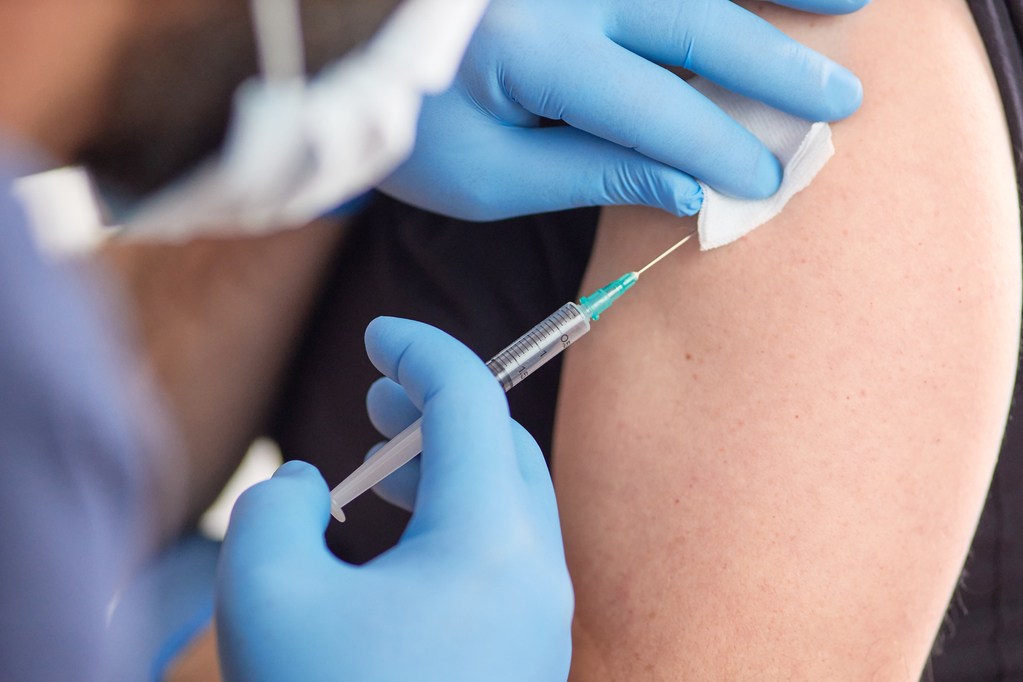The European Centre for Disease Prevention and Control issued a dire warning on Thursday stating that countries that have not yet achieved high enough COVID-19 vaccination coverage in their total populations run a high risk of experiencing a significant surge of cases, hospitalisations and mortality from now until the end of November.
The warning was indicated by a new SARS-CoV-2 Rapid Risk Assessment published on Thursday (30 September) and is directed in particular to EU/EEA countries that are planning to relax non-pharmaceutical interventions during the next two weeks.
The risk of experiencing a significant surge in cases, hospitalisations and mortality for the upcoming two months remains due to very high virus circulation, and fully vaccinated vulnerable individuals are still at risk of experiencing infection with severe outcomes, according to ECDC.
So far, only 61% of the total population in the EU/EEA have been fully vaccinated, and only three countries (Malta, Portugal, Iceland) have vaccinated more than 75% of their total population. There is a considerable variation in vaccine uptake across countries (range: 18.4 – 79.4%) and within regions, resulting in large proportions of the EU/EEA population remaining susceptible to infection.
By “total population”, ECDC means all citizens, including younger age groups for whom the vaccine is not available, or who may not be included in national target groups yet.
“Forecasts show that a combination of high vaccination coverage and effective contact reduction is crucial for reducing the risk of high COVID-19 burden on the health care systems this autumn,” said Andrea Ammon, ECDC Director.
“Countries should continuously strive to increase their vaccination coverage in all eligible age groups, regardless of current vaccination coverage levels, to limit the burden of infections posed by the Delta variant. Depending on the local epidemiological situation, non-pharmaceutical interventions may also still be needed until the end of November.”
The report also anticipates that greater proportions of SARS-CoV-2 cases amongst children will be reported in the coming months. Interventions such as physical distancing that prevent crowding as well as hygiene and improved ventilation will remain essential to prevent transmission in school settings.
Vaccination against seasonal influenza, particularly for vulnerable populations and healthcare workers, will be essential to mitigate the impact on individuals and on healthcare systems in the coming months from the potential co-circulation of the two viruses.
More than 99% of newly reported cases are attributed to the Delta variant. This variant has demonstrated a significant transmission advantage relative to previously circulating SARS-CoV-2 strains.
In the report, ECDC is applying mathematical modelling scenarios that consider vaccination coverage, vaccine effectiveness, natural immunity and population contact rate in the context of continued Delta circulation.
Countries have been divided in three groups based on their current and projected levels of vaccination coverage for the total population (low <45% total population; average 55-65% total population; high >75% total population).
The highest risk is facing countries with COVID-19 vaccination coverage at or below the current EU average level in the total population and who are planning to relax non-pharmaceutical interventions.
They have a high risk of experiencing a significant surge of cases, hospitalisations and mortality from now until the end of November 2021. In such a scenario, due to very high virus circulation, fully vaccinated vulnerable populations are also at risk of experiencing infection with a severe outcome.
To increase vaccination coverage, it will be key to address inequalities in access to COVID-19 vaccination in different population groups. It is also important to understand the factors that determine low vaccine uptake in some population groups, including issues around vaccine acceptance and access so that targeted, context-specific and effective interventions can be developed.
Currently available vaccines have played a crucial role in limiting viral circulation and in particular, limiting the impact of infections by the Delta variant but ECDC mentions also the risk of a rapid decline of vaccine effectiveness due to waning immunity among already vaccinated people.
The European Commission has repeatedly stated that enough vaccine doses have been ordered and made available to all EU member states, including for booster vaccination in Autumn if needed, but logistical problems and vaccine hesitancy have slowed down the rollout of vaccination campaigns in some countries.
The Brussels Times

